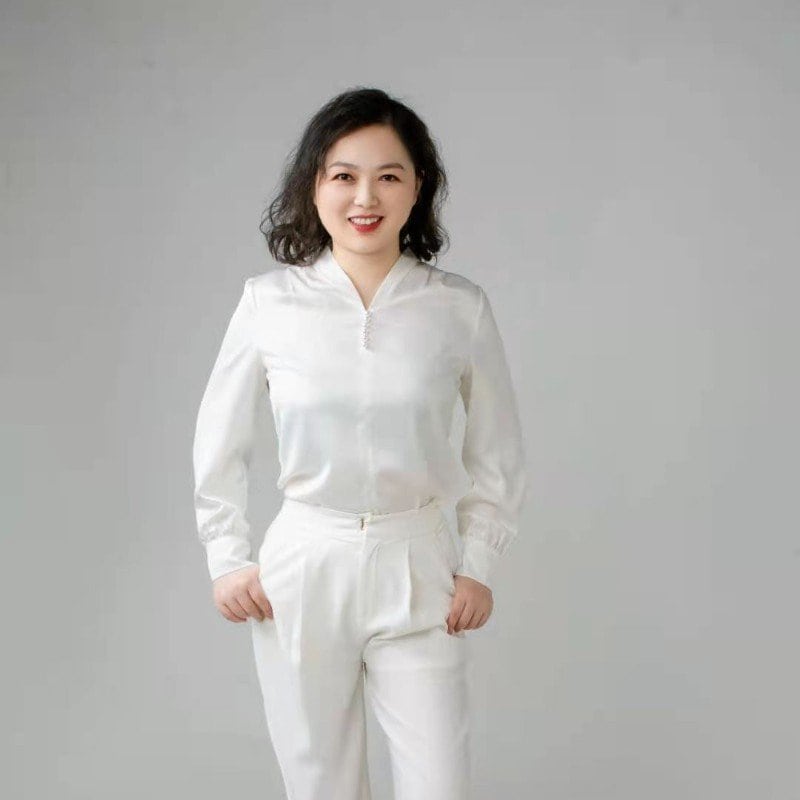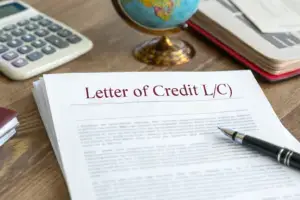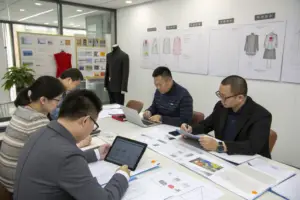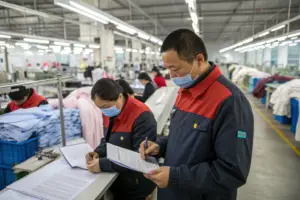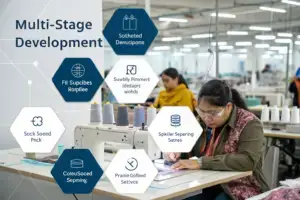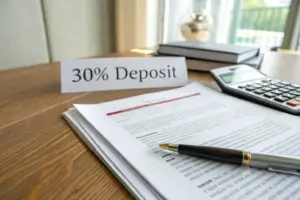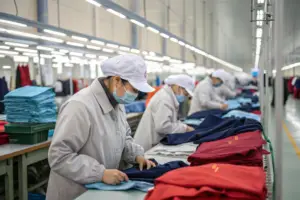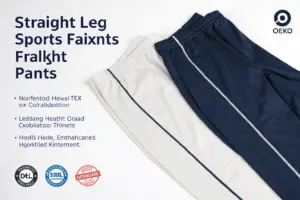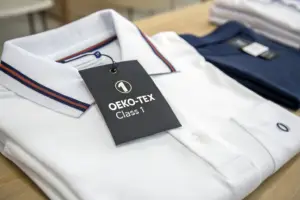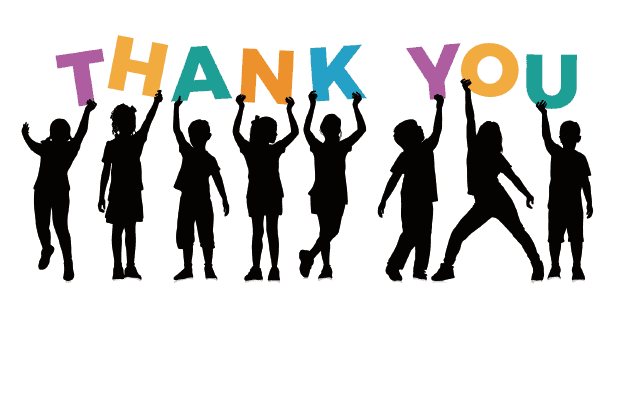When the world has a lot of significant problems to solve, luxury has become a dream.
Although the luxury sector came to a screeching halt in early 2020, some signs of a rebound are already emerging. And it is led by the Chinese market. Bernard Arnault, chairman and chief executive of LVMH (Moët Hennessy Louis Vuitton) and his family, has quietly recovered their $101bn. This despite having lost 30 percent of their wealth during the crisis. They still retain the world's largest luxury goods group and third-richest person after Jeff Bezos and Bill Gates. All these according to Forbes ' real-time rich list.
That means his wealth is slowly returning to pre-epidemic levels, approaching its peak of $117 billion. He surpassed Bezos to become the world's richest man twice, in November and January.

His luxury goods empire, LVMH, has held up well through the crisis. With its leading brands, such as Louis Vuitton and Dior, among the most resilient. The group's sales fell 15 percent from a year earlier to 10.6 billion euros in the first quarter. It was still better than the 20 percent drop it had expected, according to Fashion Business Express. Revenue at the core fashion and leather goods division fell 9 percent to €4.643bn. While organic sales fell 10 percent, it was far better than the forecast of an average decline of 25 percent.
In the past few years, the oligarchic tendency of the luxury industry has made collectivist companies such as Louis Vuitton and Kering more resilient to risks. As they pool resources, it enables them to remain strong during the crisis. Bernard Arnault also admitted in the post-earnings meeting that LVMH's diversified business and high-quality products allow them to maintain good resilience in the face of such unprecedented difficulties. According to Bloomberg, in the three weeks from April, Louis Vuitton's store sales in mainland China were up about 50% from the same period last year.
Yet this is far from the moment when Bernard Arnault can breathe a sigh of relief.
This past week, anti-racism protests across the United States have intensified over the death of a black man, George Floyd. Protesters set fire to police headquarters, smashed several banks, and ransacked several luxury stores. One was the Louis Vuitton store, as violence escalated at a peaceful vigil in Portland on Sunday night. So far, more than 20 cities across the United States are under curfew.
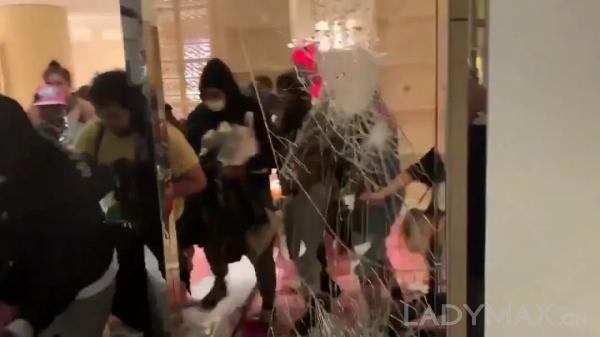
In a span of half a year, the United States has suffered a double crisis. With the situation showing no signs of abating in the United States. The confirmation of more than 1.8 million new infections makes experts fear the protests could accelerate the disease's spread. And this may lead to a slow economic recovery.
All this also affects the heart of chairman of Louis Vuitton. The U.S. market was supposed to be his second card besides China.
In November, Louis Vuitton announced a $16.2bn acquisition of Tiffany&Co, the US jewelry brand. This purchase shook the world. It is also LVMH's biggest acquisition ever, well ahead of its $7 billion purchase of Dior in 2017. The addition of Tiffany once again proved Bernard Arnault's clever mind and determination. He just became the most popular figure in the industry.
However, due to the epidemic crisis in 2020, this milestone also faces many variables. Originally scheduled to close in the middle of this year, but has to push back to the end. Australian regulators said that due to the outbreak, they needed more time to review it. And they also asked for a statutory review deadline to be extended from April 8 to October 6. LVMH had promised to stick to the $135 a share deal it reached with Tiffany in November, valuing the company at about $15.5 billion.
They see that the deal with Tiffany as a sign of LVMH's bet on the U.S. market. Some analysts point out that the acquisition of Tiffany will enable Louis Vuitton to penetrate the American market better. At the same time, it reaches more American luxury consumers while further enhancing the group's influence in luxury jewelry.
In October last year, Louis Vuitton's factory in Johnson County, Texas, USA, was officially put into production. The factory covers an area of 100,000 square feet. US President Donald Trump and Bernard Arnault cut the ribbon together, which attracted wide attention in the industry. At the ribbon-cutting ceremony, Trump noted that his family has long been a Louis Vuitton fan. He also said he had spent a lot of money on Louis Vuitton over the years. His wife, Melania Trump, also prefers Dior, another top LVMH brand.

Louis Vuitton has opened two factories in California. It follows the growing demand from American consumers. Arnault said America is LVMH's most important market globally. It contributed $12.5 billion to the group's revenues last year.
LVMH is investing $50m in the workshop, which will employ about 1,000 skilled workers over the next five years. It can shorten the delivery period from two weeks to less than a week. Some analyses point out that LVMH's establishment of a factory in the United States is conducive to cost-saving. The new Louis Vuitton factory will receive a 45% tax cut in the first year. And 75% over ten years for companies with more than 500 employees. The local government has earmarked $1.1 million for a road to the factory. Hence, Louis Vuitton will avoid American import duties.
Others in the industry believe that Louis Vuitton's real goal is to circumvent trade tensions. And further foster a rapport with Trump, who is campaigning for re-election.
Bernard Arnault's meeting with Donald Trump in 2017 inspired him to open more Louis Vuitton stores. Unlike previous presidents, Trump has met many business leaders before taking office to create more jobs for U.S. citizens. And to him, "keep jobs in the United States" has become a hot topic. Bernard Arnault said LVMH would open more factories in the United States. Trump even recommended several locations in the American Midwest.
Bernard Arnault's presence in the American market has even caused internal controversy. A day after the new shop opening, Louis Vuitton's womenswear artistic director, Nicolas Ghesquiere, took to Instagram to say that he was against all things political about luxury fashion. To quote, "I am a fashion designer and refuse to be associated with # Trumpisajoke #homophobia." Nicolas Ghesquiere joined dozens of other high-profile designers, including Marc Jacobs, Tom Ford, and Philip Lim. In a joint campaign against Trump, they have vowed not to dress then first lady Melania Trump.
In response, Bernard Arnault said that it was an honor that Trump was at the ribbon-cutting. However, he also admitted that the two had known each other since 1980, rather than saying they were friends.
Nonetheless, the importance that Bernard Arnault places on the American market is evident. Especially since the beginning of 2019, the market has questioned luxury brands' over-reliance on the Chinese market. While Louis Vuitton chairman believes in the growth potential of the Chinese market, it is clear that he is not putting all his eggs in one basket.
For the luxury market, like Louis Vuitton, the U.S. is a dream market. While the 2019 Global Wealth Report shows, there are 5.3 million high net worth individuals in the U.S. with investible assets of $1 million or more, getting them to buy high-end handbags and clothing isn't so easy. The Wall Street Journal notes. While the number of high net worth individuals in China is only a quarter of that in the United States, Bain estimates that Chinese consumers now account for 90 percent of revenue growth in the luxury industry.
Since 2010, LVMH's revenue growth in the United States has averaged 10 percent, just one percentage point below the growth rate in Asia, the paper added. And the U.S. market has been much less volatile, growing at no less than 7 percent a year over that period, compared with a 5 percent decline in Asian sales in 2015.
The U.S. is a gradual market because the luxury consumption habits of American consumers have not been high. The average American luxury consumer is about 10 to 20 years older than his Chinese counterpart. It has long been accustomed to deep discounts from department stores and the concept of light luxury brands. Moreover, in East Asian cultures, the value of the individual is socially recognized, which is why luxury goods, such as Louis Vuitton, are so popular, especially in Japan. American culture is individualistic, and the self-supporting middle class doesn't have a lot of spare money to spend. This makes many Americans indifferent to luxury.
It is this incremental market that Louis Vuitton is targeting. He sees it as a business opportunity and as a mission to be the heir to European culture. While LVMH is making inroads in Europe and Asia, the U.S. is still fertile ground for high-end European luxury goods to penetrate. "I see myself as an ambassador for French heritage and French culture," he said. "We create symbolic things from the Versailles to Marie Antoinette."
But taking advantage of the growth in the American market will not be easy. In addition to the shopping habits, the physical retail environment in the United States has been devastated in recent years. And this is due to the rise of online shopping methods such as Amazon. Since last year, the market has set off a wave of closures. According to Business Insider, the total number of store closings in the U.S. reached 9,300 in 2019. This breaks the previous record of around 8,000 store closings in 2017. The epidemic crisis of early 2020 will be even more devastating to the U.S. retail industry. Luxury department store Neiman Marcus, American high street brand J.Crew and other well-known enterprises have gone bankrupt. More apparel enterprises are shaking in the epidemic.

European luxury brands also have to deal with sensitive cultural no-go zones in the U.S. market. This fact adds to the risks of operating in the local market. Offending African American consumers has caused Gucci actual losses. Growth in Gucci's North American market slowed to 5% in the first quarter of 2019. It is a rare single-digit increase and the slowest growing region globally, dragging down the brand's overall growth. The market thinks this may have something to do with Gucci's racist controversy last year over its black turtleneck "Balaclava" sweater.
Since last year, the controversy of racism has erupted in the fashion industry. Among those caught in the controversy are brands such as Gucci, Prada, and Kawakubo. Ladymax, through WeChat, reported it in great detail. Critics have suggested that the brand's racism has exposed a history of hypocrisy in the fashion industry.
When luxury becomes a global business, it is already about more than just ideas. Fashion, unlike art, is not only appreciated by consumers but also paid for. Most luxury brands come from Europe, but the luxury market in Western Europe, their home base, is declining. And the main markets that are really propping up the brand's finances are unfamiliar emerging markets in Asia and the Americas.
Now, the twin crises of protests and epidemics in the United States have brought unprecedented uncertainty to Louis Vuitton boss Bernard Arnault's vision of the American Dream.
The impact of the crisis on luxury brands is the equivalent of the Paris yellow vest movement in the U.S. Since the end of 2018, the French luxury fashion retail industry has been rocked by the "yellow vesture movement," with luxury stores and department stores, including Chanel and Dior. There were beating, looting, and forced closure. The campaign has dealt a significant blow to travel retail and reduced the desire to spend in the European market. Last March, Galeries Lafayette's managing director, Nicolas Houze, said the yellow vest campaign had cost the group 50 million euros.
Of course, specific events won't stop the century-old luxury giant from pursuing a long-term strategy. Bernard Arnault has said that he cares less about sales than Louis Vuitton 10 years from now. That is why his faith in the Chinese market remains unshaken, even at the height of the epidemic.
Experts of capitalism know greed when others are fearful and fear when others are greedy. For industry giants such as Louis Vuitton, it is more important to look at long-term fundamentals rather than short-term effects, which tend to be overestimated and underestimated.
From the long course of history, whether Hong Kong market slump or epidemic crisis, is just a tiny spray. The epidemic crisis of early 2020 has so far only wiped out the growth of the past year. And Louis Vuitton's share price is recovering to its level of the same period last year. At Friday's close, LVMH shares were trading at €375. Thus, giving it a market capitalization of about €195bn, not far off its €200bn-peak last year.
Yet even a radical such as Bernard Arnault will have to be cautious in these complex circumstances. The frequency of black swans suggests that turbulence is the norm. And managing is a risk one must take.
From a tiny slice of the fashion industry, one can already see that the recent protests are a long-simmering emotional outburst. Louis Vuitton and other luxury and fashion brands will have to be more cautious to avoid the risks that arise from time to time in their global expansion. The world has ushered in the real "era of reckoning." Any mistake, even a historical one, is likely to be blamed.
Risks for luxury brands rose sharply in the U.S., where both the short and long term is uncertain. With Europe in the doldrums and the U.S. in turmoil, China is the only one to offer certainty.
Even if Bernard Arnault, chairman of Louis Vuitton company, is not going to come to terms with the U.S., he needs to face the hard truth. The growth in the global luxury market will get more challenging.
If you're tired of unexpected fees, missed delivery windows, or confusing customs documents, it's time to try DDP. At Fumao Clothing, we’ve built our operations around serving clients like you—ambitious, quality-focused brand owners in the U.S and Europe. Let us manage your full journey from design to doorstep. Contact our Business Director Elaine at elaine@fumaoclothing.com to explore how our DDP solutions can simplify your sourcing.

